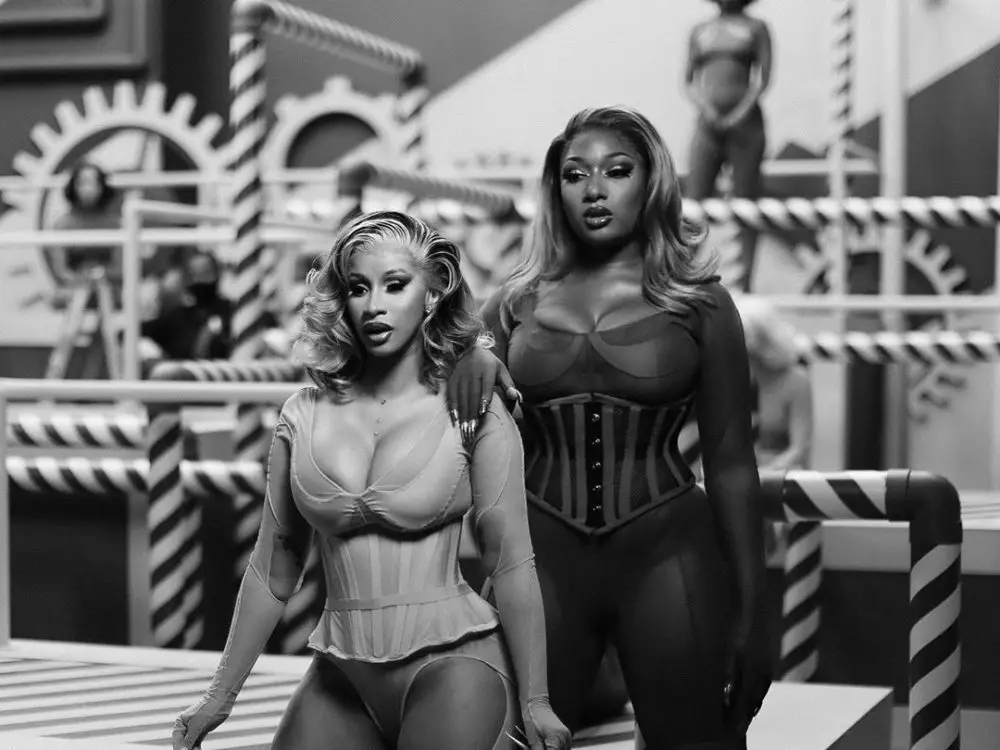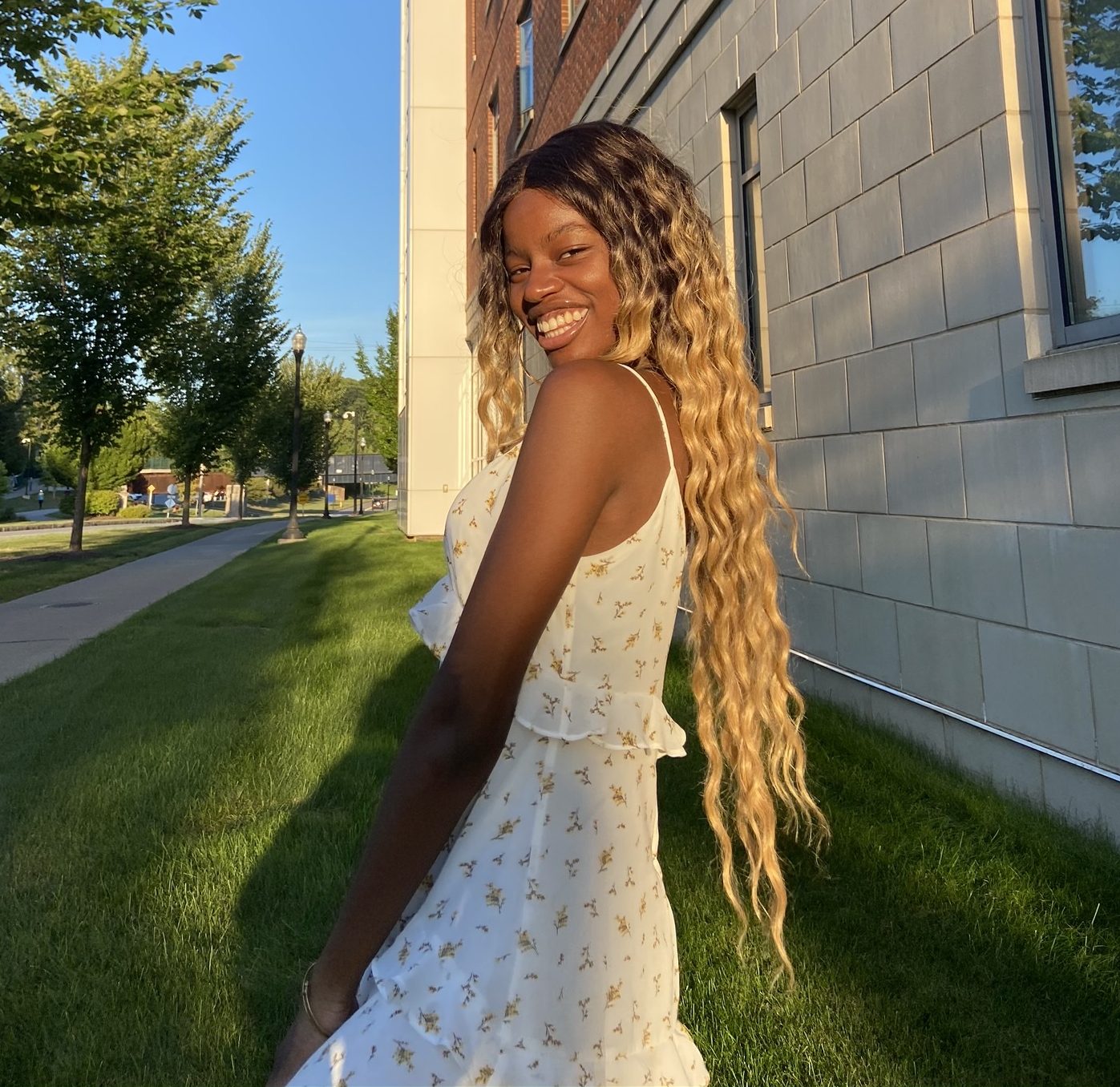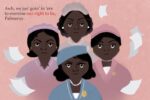It’s been two months since “WAP,” one of the most popular songs of 2020, was released and while Cardi B and Megan Thee Stallion have reached tremendous milestones in their careers on their own, this has definitely been one of the best collabs since Alicia Keys and Nicki Minaj came out with “Girl on Fire.” However, some people do not like the song and are in quite an uproar over the whole thing.
The Controversy Over “WAP”
James P. Bradley, a Republican congressional candidate from California, was the first to spark the conservative backlash to the song. He tweeted, “Their new ‘song’ The #WAP (which I heard accidentally) made me want to pour holy water in my ears and I feel sorry for future girls if this is their role model!” If he stumbled on it accidentally, clearly no one forced him to listen to it, which makes you wonder why he sat through the whole thing, but okay.
That same day, DeAnna Lorraine, who recently lost a Republican primary election in Nancy Pelosi’s California district, claimed on Twitter that “Cardi B & Megan Thee Stallion just set the entire female gender back by 100 years with their disgusting & vile ‘WAP’ song” and “The Democrats support this trash and depravity!” Why is rap music her main concern? Shouldn’t she be doing something more important with her time like focusing on her political campaign? As Gen Zers and millennials, we should be focused on how “WAP” has become a cultural touchstone and what it means for the feminist movement. Have Cardi B and Megan Thee Stallion truly “set back the entire female gender 100 years”? Or is it actually advancing women’s rights, especially for Black women and Black women rappers?
The Song Is Ultimately Empowering
Feminism means women get to choose what they want to do outside of the roles assigned to them by the patriarchy — and if that means those women want to have sex with many guys and celebrate their “WAP,” then we should let them because it’s their choice. For many women, the song has been celebrated for its sexual liberation: Megan Thee Stallion and Cardi B openly dance and twerk in their video and were praised for their right to do so. The lyrics of “WAP” emphasize female power during sex and more importantly, female pleasure. One of the sardonic critiques that surrounded the song was that having a “WAP” is not healthy or normal. However, when a woman is sexually aroused — well, maybe Ben Shapiro missed the birds and the bees talk, but this is just what happens.
The main point being made here though is that when a woman expresses her sexual pleasure in a song, it’s critiqued, but the lyrics resonate with many women because the track emphasizes and normalizes female arousal. Not only is it “okay” but completely healthy, as gynecologist Daniel Grossman, MD, said in response to Ben Shapiro’s comment on how “anti-feminist” the song was.
“WAP” is empowering for many women; this includes Brandie Blaze, who’s a plus-sized, Black, queer woman rapper and is not typically depicted as someone who can be sexy, sexual or someone who can even enjoy sex. As she talks about in an episode of Jubilee Spectrum titled “Is WAP Female Empowerment?,” this song and rapping about sex in her own music helped her reclaim her power and her identity on her own terms as a rape survivor.
Brandie also identifies as a feminist, so the idea that “WAP” is “anti-feminist” necessarily excludes certain people from feminism. Is it all women or are Black women, once again, being left out of the conversation? Black women are not free to celebrate their sexual liberation and their bodies the same way as white women, such as Lady Gaga, who is also well-known for talking about sex in her music but is praised for it.
Some critics say that “WAP” promotes the over-sexualization of young women, but it should be recognized that Black women are typically portrayed as hyper-sexualized beings in the first place. From the beginning of slavery, Black women were demonized for the natural look of their bodies. For Black women today, to reclaim the power historically stripped from them just illuminates that the hyper-sexualization of their bodies still exists.
Hyper-sexualization is not the woman’s problem, it’s the lens by which we look at them. Telling women that they can’t express their sexuality simply because it might lead to male objectification is harmful and similar to sexist dress codes where girls who go to school in tank tops are sent home because their shoulders are too distracting for the boys. Women should not be held responsible for the objectifying gaze that society taught men to take advantage of — it both prevents young girls’ learning in the classroom and rappers from claiming their sexual identities with pride.
The importance of female rappers supporting other female rappers in the industry should also be acknowledged. It’s so common for Black women rappers to be pitted against each other for petty drama but this video showed women coming together to celebrate who they are as sexually liberated women, showcase their talent and have fun. Women should be able to have fun when they’re talking about sex the same way men in rap do.
Sex and Men Versus Women in Rap
Black women in rap are not taken as seriously as men in rap. Not only are they underappreciated for their talent in award shows, but they also work with male-dominated record companies that want or expect certain things for them and their music. The argument can be made that men helped co-write Cardi B’s “WAP” lyrics, but the idea that she simply didn’t choose to sing these lyrics of her own volition emphasizes the point about undervaluing the choices and the talent female rap artists have in their music and the decisions they make in their videos.
To further emphasize this point, it can be noted how the content in this song isn’t off-brand for Cardi. She talks about stripping in her song “Money” and how she is proud of the choices she made with her body to support her financial needs. It’s also not that rare for Megan to talk about sex either. Her song and music video “Big Ole Freak” has 75 million views on YouTube and just as we hear in “WAP,” she claims the term “freak” to describe her sexual preferences. The only difference is, she’s talking about her having sex with men. Do you see a trend here?
Men rapping about sex with women never get as much criticism as women rapping about sex with men — in fact it’s not only expected, but praised in their songs. For example, the song “U.O.E.N.O” by Rocko featuring Rick Ross, Wiz Khalifa, ASAP Rocky and Future, has a line by Ross that says, “Put Molly all in her champagne, she ain’t even know it; I took her home and I enjoyed that, she ain’t even know it.”
A song that promotes the rape of a woman was less controversial than two women holding snakes over their bodies in a synchronized dance. Apparently, Black women expressing their sexuality within a patriarchal genre is simply too much. Another critique of “WAP” is that it promotes violence against women. However, anyone who watches the video or listens to the song and assumes this invites them to commit violent acts against women is the aggressor, and it has nothing to do with the song. Or rather, not to “WAP” anyway; maybe we should look more closely at Rick Ross’ lyrics above and criticize what those kinds of songs are explicitly saying.
The Influence of “WAP”
Hopefully “WAP” continues to inspire Black women to be open about their sexuality so that it’s as normalized as it is for men in rap. Women need to be recognized for their lyrical talent and respected as the artists they are, no matter the type of content they choose to produce. And hopefully, more Black female rappers get paid and recognized for their music even if they choose not to talk about sex so explicitly.
During the 2019 Grammy Awards, Cardi B took home best rap album for “Invasion of Privacy” but was the only woman to do so as a solo artist ever. In the 2020 Grammys, however, only Cardi B was nominated (and only for her feature on Offset’s “Clout”), and there were no other female rapper nominees. Once again, artists like Rico Nasty, Saweetie, Flo Milli, Mulatto, Rapsody, Tierra Whack and many others were left out of the conversation. People complain about the explicit content female rappers produce but don’t support them when they talk about anything else.
Of course, the influence of “WAP” on our young women and girls should be taken with a grain of salt. It should also be obvious that this isn’t a song for a 5, 9 or even 12-year-old girl to listen to. Music is supposed to be for a variety of people of different walks of life and ages, but with explicit content, younger people should wait until they’re older.
As much as it can be one of 2020’s feminist anthems, it doesn’t have to be one of theirs. Although, to put the blame on one song for “tarnishing our young girl’s generation” or for “ruining” the feminist movement is nonsense. Either listen to the clean version or just change the radio station. Cardi B probably isn’t telling her 2-year-old daughter about her WAP and people can choose not to do so as well.
But for Gen Z and millennial women, it’s liberating and empowering to hear about embracing your inner sexual prowess and controlling pleasure in the bedroom. It’s an important message, and one that needs to be said.


















Hello,
Hello,
I have read a number of articles by Black feminists on the subject of “WAP.” I am a long time progressive, although that should be irrelevant in how my thoughts are received.
I feel the lyrics, whether self-empowering or not, strongly celebrate the objectification of women. The opening sample about “whores in the house” sets a negative, sexualized tone about women. And with the graphic details about desires, it is hard to imagine how this song could in any way discourage men from treating women in a more objectivizing way than they already do.
And to say that men in rap have expressed their sexual inclinations without criticism, simply says to me they have been given a pass with excuses like”that’s the language of the streets”. They need to be called out and sometimes (though rarely)are.
Critics can explain things, judge things or justify things. The first is the best I think because it gives us a dispassionate understanding of cultural, social and economic forces creating certain behavior/attitudes. Judging holds everyone to the same standards, such as in a courtroom. And justifying means acting like a defense attorney for a particular group.
It is sort of a populist, frankly Trump-like approach where everything done by a particular group is defended independent of any real ideology.
I think on this topic, some African-American feminist writing feels like justification.
Please consider that you can support your group without justifying everything they do. That is more like enabling than honestly looking at the facts. As the late Filipino activist movie director observed I think holding a mirror up to one’s own social group can sometimes be the most productive thing to do.
Thank you.